Ukraine crisis: ICRC activities up to end of August
… Red Cross to provide food, medical care and restoring family links services; helped the Ukrainian Red Cross …
… Red Cross to provide food, medical care and restoring family links services; helped the Ukrainian Red Cross …
… violence and other emergencies, to restore family links and to promote fundamental humanitarian …

… who are not physically located on board Restoring Family Links Strategy for the Movement In November …
… their immediate seeking to reconnect with family members needs in corporation with the … governorates were trained in first aid, restoring family links services and emergency response …
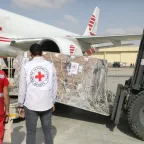
… The ICRC helps reestablish contact between family members separated by conflict, other … BRINGING FAMILIES TOGETHER The ICRC’s Restoring Family Links (RFL) department received 8,615 visits …
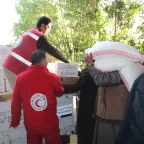
… areas. The ICRC is currently sending 40,000 family parcels to families in the … for the simultaneous release of prisoners. Restoring family links Since the beginning of September, the …
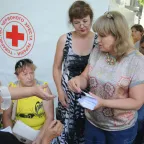
… together explore innovative ways to restore family links and to transform the global effort to … around the globe to protect and restore family links, to search and identify missing …
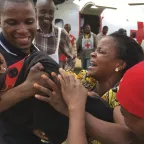
… order to strengthen the Tracing/Maintaining Family Links capacity of the Movement in the country, … ICRC Team in Asmara Financial support and family-link services Eritrean The ICRC has …
… its main activities are visiting detainees, restoring family links, and clarifying the fate of the missing …
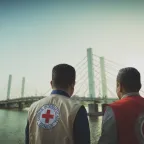
… was the breadwinner and was supporting the family with the meagre income he was getting … driving a taxi. According to Sanait, the family was leading a happy life. But seeking a … ICRC. The ICRC is striving to restore family links among families separated by armed …
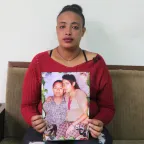
Try one of the following resources:
Created in 1863, the ICRC library, alongside the ICRC archives, provides an indispensable documentary reference on the organization itself and international humanitarian law.
International humanitarian law is based on a number of treaties, in particular the Geneva Conventions of 1949 and their Additional Protocols, and a series of other instruments.
Customary international humanitarian law consists of rules that come from "a general practice accepted as law" and that exist independent of treaty law.